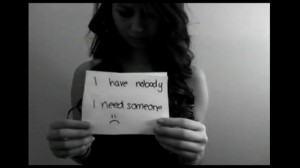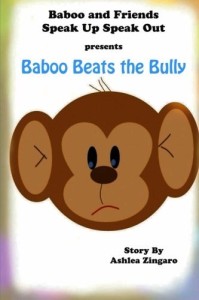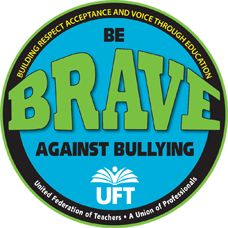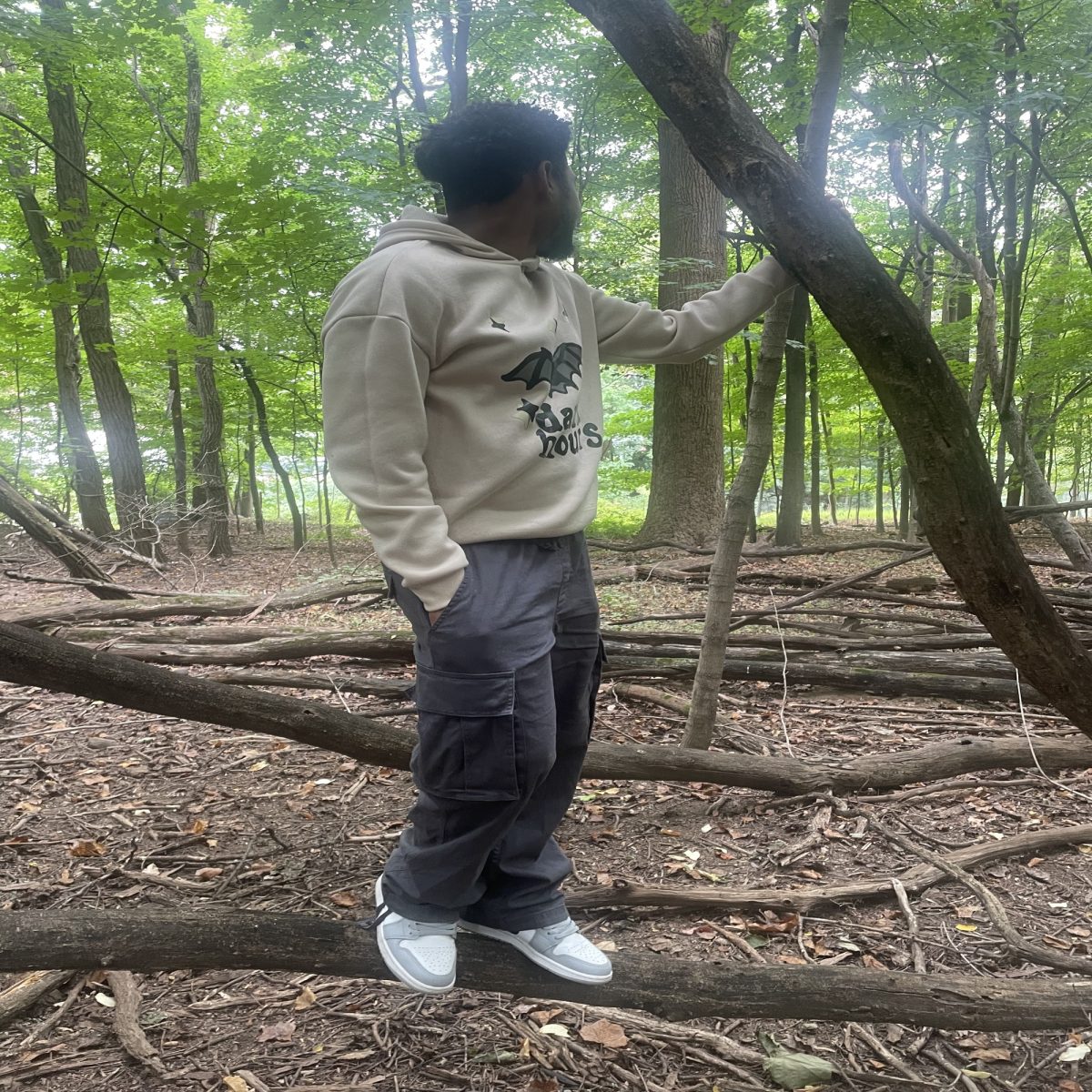The month of October is National Anti-Bullying Awareness Month. This labeled month was declared to shine light on the topic of bullying and how it affects and has affected people everywhere. During this month, everyone involved in this cause comes together to help bring attention to the issue and help prevent bullying as a whole.
What exactly is bullying? Well, according to stopbullying.gov, the accepted definition of bullying is as followed: “Bullying is unwanted, aggressive behavior among school aged children that involves a real or perceived power imbalance. The behavior is repeated, or has the potential to be repeated, over time. Both kids who are bullied and who bully others may have serious, long lasting problems.”
In order to be considered bullying, the behavior must be aggressive and include the following: Imbalances of power, kids who bully use their power—such as physical strength, access to embarrassing information, or popularity—to control or harm others. Power imbalances can change over time and in different situations, even if they involve the same people. It also may include repetition. Bullying behaviors happen more than once or have the potential to happen more than once.
Also, bullying includes actions such as making threats, spreading rumors, attacking someone physically or verbally, and excluding someone from a group on purpose.
“I have been bullied ever since the 1st grade. It even went up until senior year of high school. Classmates would call me horrible names, write mean things about me on bathroom walls or the bus seats. They would ignore me, prank phone call my house or cell phone, and post mean comments on my Facebook. Sometimes classmates have thrown things at me,” said Brian Breese, Mercy College Senior and Behavioral Science major.
This is a problem that affects children and people everywhere. In a survey administered by the Impact, half of Mercy College students have been bullied at some point in their life. Also, out of everyone who was surveyed, each student stated that bullying is a very serious issue that needs to not to be taken lightly.
“There should be more done about bullies. Their punishment should be more serious than just a slap on the wrist,” said Kitrina Oglesby, Mercy College junior and Criminal Justice major.
Does bullying still exist in college? According to the survey, each student stated that they have witnessed that bullying still does exist in college. However, students have also stated that the highest form of bullying that they have witnessed in college is name calling due to race, appearance, and/or sexual orientation.
“I have witnessed bullying in college from racial remarks to remarks on sexual orientation to appearance,” said Alfredo J. Pinto-Ricardo, Mercy College senior.
The issue is serious to some, and not as serious to others. Bullying is known to cause the same issues that trauma does. “Often, bullying leads to serious mental health issues such as depression, anxiety, panic disorder etc. It can have the same effects as trauma” said Dr. Gabriella Chesneau, social worker and psychologist at Mercy College.
Bullying is not known to have any positive effects, whether they are a child, teenager or an adult. “There are no positive effects of bullying,” said Chesneau.
Mercy College senior Joseph Maldanado feels that bullying is getting more serious each day. “Every year, kids kill themselves because of bullying. I also can’t remember hearing about bullying too much as a child. It just seems that all types of bullying has grown over the years.”
Out of the 77 percent of those bullied, 14 percent have a severe or bad reaction to the abuse. These numbers make up the students that experience poor self-esteem, depression, anxiety about going to school and even suicidal thoughts as a result of being bullied by their peers.
Suicide is the third leading cause of death among young people, resulting in about 4,400 deaths per year, according to the CDC. Also, bully victims are between 2 to 9 times more likely to consider suicide than non-victims, according to studies by Yale University.
The tragic story of the recent suicide of Amanda Todd is an example of the effects bullying has.
“A very current and severe example of the effects of cyber bullying is the recent suicide of 15 yr old Amanda Todd,” said Chesneau.
Amanda Todd was a teenage girl from Vancouver, Canada. Todd was only one month away from her sixteenth birthday when she took her own life. On Oct. 10, she was found dead in her home. It has been said that Todd was “bullied to death.” Five weeks before her tragic death, Todd posted a video on YouTube reaching out and explaining her traumatic story. In the video, she does not speak but tells her story using cue cards. Her story all started when she was in seventh grade and would make web cam videos with her friends. Their hobby was innocent until a man contacted Todd, asking her to flash him, and so she did. Since that day, Todd was bullied physically, verbally, and cyber bullied as well.
The picture of her flashing haunted her. One year later, a man contacted her on Facebook, threatening to send around the picture of her topless if she did not put on a show for him. Terrifyingly, the stranger knew everything about her. That included her address, school, friends, relatives, and the names of her family members. Soon, her naked photo had been forwarded to everyone. Todd states that she had “hooked up” with another girl’s boyfriend, and that the bullying escalated afterwards.
Todd also stated that she had changed schools several times, but her past just followed her everywhere that she went.
Todd developed anxiety, and depression. Also, that the bullying and disorders led her to drugs and alcohol. The effects of the bullying took such a toll on Amanda that she even drank bleach and had to be rushed to the hospital to flush out her system. Still, the bullying did not stop. Unfortunately, five weeks after she had made her YouTube video, Amanda Todd hung herself.
Unfortunate stories like these show the negative effects a bullying can have on a person. Bullying is no joke, as it has became a major media over over the past few years.
Exploring the Causes
Why do people bully others? A question many people ask themselves. There are a variety of reasons why people bully.
According to bullystatistics.org, there are cultural, institutional, social, family, and personal issues that may cause someone to torture another, along with the need for having power and being provocative victims.
Cultural: When a person comes from a culture that is fascinated with winning, power, and violence, it is almost expected that that person will seek power and use violence throughout their life. Many young people grow up expecting that violence is an acceptable way to get what one wants.
Institutional: If the institution, home, school, or the workplace the workplace does not have high standards for the way people treat each other, then bullying may be more than likely to occur.
Social: When real life situations, as well as reality TV, show that acting out is more likely to get notice than behaving civilly, a person may begin to learn that acting out or acting with violence is okay.
Family Causes: Families that are not warm and loving, where feelings are not shared or accepted, are more likely to have children who bully or will bully. These children can bully either within the family’s home or out of the home. Noticeably in school.
Personal History: Children who experience social rejection are more likely to do the same onto others. Also, children who experience academic failure are more likely to bully others.
Possessing Power: Some people learn to believe that having power makes it okay to bully. Also, when someone is assigned power, they likely also find that it is okay to use their power to solidify their position and bring about negativity to others. It makes him or her feel as if they are superior to others.
Provocative Victims: When a child or person speaks or acts out aggressively, it does not always mean that they are intentionally trying to bully. They might actually be acting out due to personal reasons. A child or person acting out for attention may be wrongfully accused of bullying.
“Bullying victims who become bullies are much like children who have witnessed one of their parents being abused, and then grow up and become an abuser themselves,” said Dr. Gabriella Chesneau, social worker and psychologist at Mercy College.
Chesneau would like to make it known that “Bullying at Mercy College violates the student code of conduct and is not tolerated. Any student experiencing or witnessing any type of bullying behavior should report it. As you know, counseling is offered for free and confidentially to all Mercy College students.”
How do you overcome or stop the bullying? Unfortunately, it is not as common as people would like where a bullying victim speaks out about their traumatic experience. However, there is still time and there is still hope to prevent and help stop the national tragedy we know as bullying.
Some bullies bully because they were bullied. This is not always the case, but it is true. When asked if he had ever bullied someone, Steven Bettencourt, a Mercy College senior, stated, “Yes, once you’re bullied you kind of want some revenge. So yes, I have.”
When someone is bullied, not only may it become a learned trait, but it causes her or she to have anger and a taste for revenge.
She adds some suggestions to help stop and/or overcome the bullying. For one, violence is never the answer. It may feel better for the victim at the moment; however, it does not help in the long run. Physical violence, or fighting, can lead to a much more complicated circumstance. One of the people in the fight may or can get seriously injured.
“Violence is never the answer when it comes to resolving anything. As much as we may think that it will help us release our anger, the truth is, violence will only beget more violence, and the cycle will continue and most of the time, get worse,” said Ashlea Zingaro, author of Baboo Beats the Bully.
Zingaro’s book is the first in her children’s series, called Baboo and Friends Speak Up Speak Out. It was published online in June and is available on paperback in November.
She felt it was necessary to write a book about the issue.
“I am a mother of two small children. I remember saying to myself that kids need more of an outlet to talk to people, to know that there are people out there that are willing to listen to them, cry with them and be an advocate for them. Whether it is sitting down with their parents, sending an email to their friend, or even reading a book that reaches out to them.”
It has also been seen throughout the years that many bully victims result to weapons when it comes to dealing with bullying. For example, the Virginia Tech massacre.
It was a school shooting that took place on April 16, 2007 on the campus of Virginia Polytechnic Institute and State University in Blacksburg, Virginia. The shooter was Seung-Hui Cho, a 23 yr. old senior undergraduate student. Cho killed 32 people and injured 23 others. Then, Cho took his own life.
Cho was a shy Asian immigrant and has been said to have been severely bullied and suffered racial discrimination.
It was the worst shooting incident by a single gunmen in American history. It was second only to the 1927 Bath School Bombing in having the largest death count in school massacres.
The best way to deal with bullying is to reach out and tell someone.
“I listened to my mom. She used to tell me sticks and stones may break my bones but words will never hurt me, that always helped. Also, I talked to my friends and family,” said Brittany Arce, Mercy College senior.
Also, it is very important that parents teach their children about bullying and what to do if it happens to them.
“I believe that if we reach out and speak to our children about bullying when they are young they will be more aware and prepared for it if a bully tries to attack them. And the challenge of speaking out and getting help wouldn’t be as hard for them. Sometimes all it takes is a few words of encouragement to change and save someone’s life,” said Zingaro.
It is so important to shine the light on bullying, what causes it and what can stop it.
A message from Dr. Chesneau: Any student experiencing or witnessing any type of bullying behavior should report it. Counseling is offered for free and confidentially to all Mercy College students.
Also, be sure to check out Zingaro’s Facebook page dedicated to speaking up and speaking out about bullying: www.facebook.com/SpeakUpSpeakOut4Kids
BRAVE (Anti-Bullying Hot line) 212-709-3222
This hot line was launched by the United Federation of Teachers, and the Mental Health Association of New York City. It stands for “building respect, acceptance, and voice through education.”












